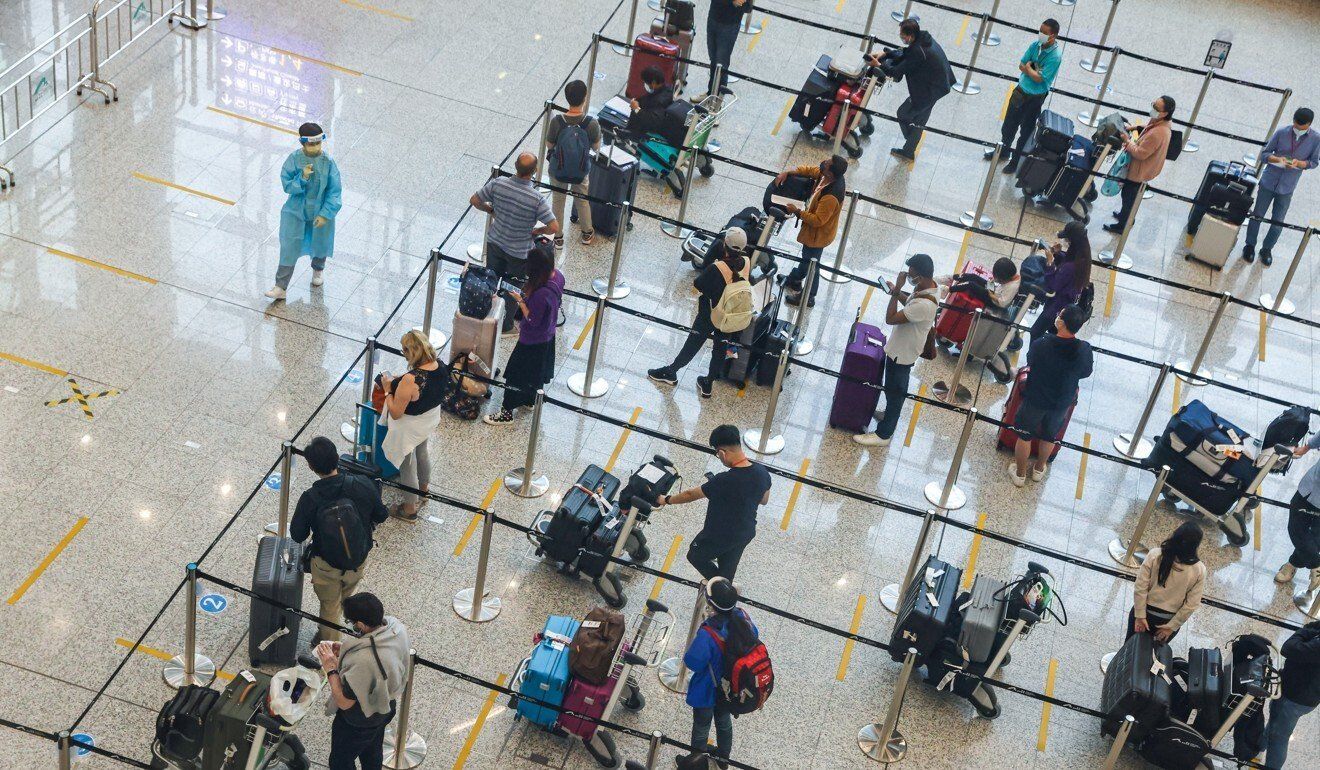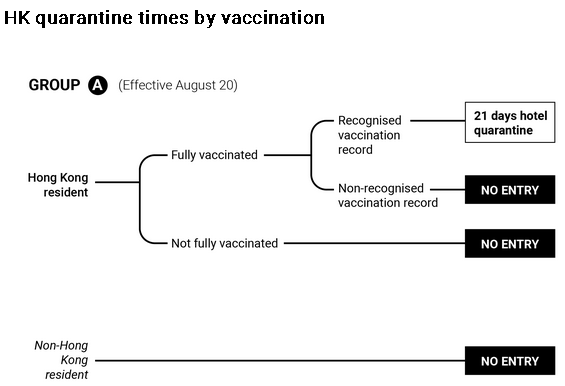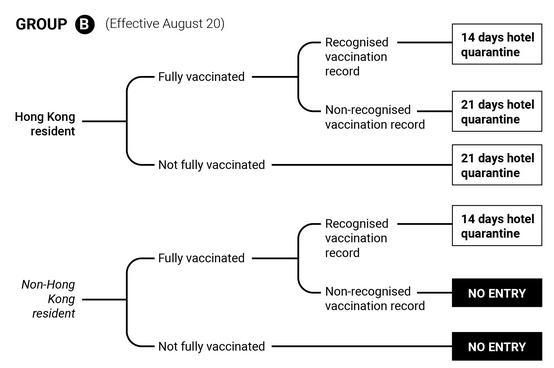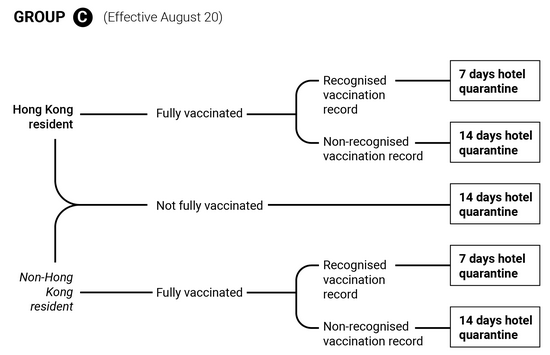
Hong Kong’s imported Covid-19 cases mostly caught in first 14 days of quarantine
Nearly all imported Covid-19 cases in Hong Kong were detected in the first 14 days of quarantine, health authorities have revealed, but experts insist that the 21-day isolation period for some travellers should be maintained to prevent community outbreaks.
Analysis of the city’s imported coronavirus cases in recent months also showed that vaccinated patients were less likely to develop symptoms or lung conditions, or require antiviral drugs, underscoring the importance of being inoculated.
Hong Kong’s 21-day quarantine, required for travellers from high-risk countries such as Britain, India and the United States, as well as for unvaccinated arrivals from medium-risk places, is among the world’s toughest.
In a press briefing on Tuesday, controller of the Centre for Health Protection Dr Edwin Tsui Lok-kin said more than 96 per of the city’s imported cases were picked up by the seventh day of quarantine, and 99 per cent were detected by the 14th day.
 Passengers at Hong Kong International Airport wait to be transported to their quarantine facilities.
Passengers at Hong Kong International Airport wait to be transported to their quarantine facilities.
The remaining 1 per cent of cases were detected before the 21st day.
“According to these simple statistics, we can show that the current quarantine measures are still effective in picking up cases which are imported from overseas,” said Tsui, who took the helm earlier this month.
Health experts agreed that the 21-day quarantine was still necessary given the city’s zero-Covid strategy.
“If we have active transmission [of Covid-19] in the community, we could tolerate that 1 per cent of cases, but not when we are adopting the zero-infection strategy,” respiratory medicine expert Dr Leung Chi-chiu said.
University of Hong Kong public health epidemiologist Professor Benjamin Cowling had previously questioned the premise for the 21-day quarantine policy for fully vaccinated travellers, arguing that 14 days of self-isolation would be “more than enough” to stop infected people from entering the community.
But government pandemic adviser Professor David Hui Shu-cheong said a small percentage of cases could still mean a large number of infections.
“One per cent does not mean one case but could be quite a lot of infections, as we have a certain number of incoming travellers,” Hui said. “Many of them come from high-risk places.”
He said vaccination rates would need to be taken into account if the city hoped to relax its border-control measures. The inoculation rate of the elderly remained low, and this could put them at high risk if a community outbreak occurred, he said.



The city has listed 25 countries as high-risk, with New Zealand the only entry in the low-risk category. All other places outside China are considered medium-risk.
People aged 60 or older comprised more than 74 per cent of Covid-19 patients who had been sent to local intensive care units, according to Hospital Authority data revealed on Tuesday. They also made up most of the deaths related to the virus.
But the uptake rate of jabs among this group remains slow. So far, 42.5 per cent of people in their seventies have received at least one dose of vaccine, and that figure is 16 per cent for those aged 80 or older.
Overall, 4.6 million people, or 68.3 per cent of the eligible population in the city, have received at least one vaccine dose.
Health officials on Tuesday reiterated calls for vaccination, as analysis of the city’s Covid-19 cases showed that inoculated patients displayed milder symptoms of infection.
The Hospital Authority analysed 131 imported cases from May 1 to September 15 this year, and 78 of them were fully vaccinated. The median number of days spent in hospital for patients was 12 for the vaccinated group, three days shorter than those who were not inoculated.
Among fully vaccinated patients, 46.2 per cent developed symptoms such as cough and runny nose, with the rate for the non-vaccinated at 73.6 per cent.
Just 3.8 per cent of fully inoculated Covid-19 patients required antiviral drugs, in contrast to 20.8 per cent for the other group.
Tsui urged the public to get vaccinated before the arrival of the winter flu season around January.










